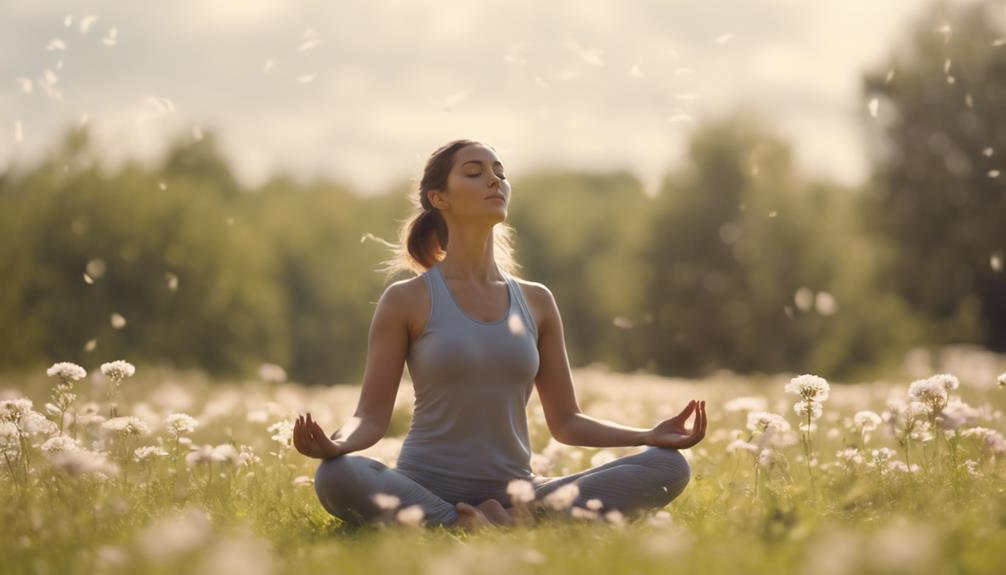Yoga For Anxiety

Anxiety is a common mental health issue that affects millions of people worldwide. In today’s fast-paced and stressful environment, many individuals are seeking holistic and natural methods to manage their anxiety. One of the most effective and accessible options is yoga. In this blog post, we will explore how yoga for anxiety can be a powerful tool for promoting mental well-being and improving overall quality of life.
Understanding Anxiety: A Growing Concern
Before diving into the benefits of yoga for anxiety, it’s essential to understand what anxiety is. Anxiety is characterized by feelings of worry, fear, and apprehension, often accompanied by physical symptoms such as rapid heartbeat, sweating, and trembling. According to the World Health Organization, anxiety disorders are the most prevalent mental disorders globally, impacting both adults and children. Traditional treatment methods often involve therapy or medication; however, many individuals are now turning to yoga as a complementary approach to anxiety management.
The Science Behind Yoga and Mental Health
Research has demonstrated a profound connection between yoga and mental health. Studies indicate that practicing yoga can significantly reduce symptoms of anxiety and depression. The practice encourages mindfulness, which allows individuals to focus on the present moment, reducing rumination and negative thought patterns that often fuel anxiety. Additionally, yoga promotes relaxation through deep breathing techniques, which can lower cortisol levels—the hormone associated with stress. This combination of mindfulness and relaxation makes yoga a unique and effective practice for those dealing with anxiety.
How Yoga for Anxiety Works: Key Benefits
The benefits of yoga for anxiety extend far beyond physical postures. Here are some key ways in which yoga can help alleviate anxiety:
1. Mindfulness and Presence: Yoga encourages practitioners to stay present, which can reduce the tendency to dwell on past events or worry about the future.
2. Breath Control: Breathwork (or pranayama) is central to yoga practice, helping to activate the body’s relaxation response and reduce anxiety symptoms.
3. Physical Activity: Engaging in physical activity releases endorphins, which are natural mood lifters. Yoga, in particular, combines movement with mindfulness, enhancing its anxiety-reducing effects.
4. Community Connection: Participating in group yoga classes fosters a sense of belonging, which can combat feelings of isolation often associated with anxiety.
Types of Yoga Beneficial for Anxiety Relief
Not all yoga styles are created equal when it comes to anxiety relief. Some forms of yoga are particularly effective for managing anxiety symptoms:
1. Hatha Yoga: This gentle form of yoga focuses on physical postures and breath control, making it accessible for beginners.
2. Restorative Yoga: This soothing practice involves holding poses for extended periods, promoting deep relaxation and stress relief.
3. Yin Yoga: Similar to restorative yoga, yin yoga encourages slow, mindful movements, allowing practitioners to connect with their breath and emotions.
4. Vinyasa Yoga: This dynamic style incorporates breath with movement, providing a physical outlet for stress while promoting mindfulness.
Incorporating Yoga into Your Daily Routine
Integrating yoga into your daily routine can significantly enhance your mental health and help alleviate anxiety. Here are some practical tips for getting started:
1. Set Aside Time: Dedicate a specific time each day for your yoga practice, even if it’s just 10-15 minutes.
2. Create a Calm Space: Designate a peaceful area in your home for your practice, free from distractions.
3. Use Online Resources: There are countless online classes and tutorials available—choose one that resonates with you and fits your skill level.
4. Listen to Your Body: Pay attention to what your body is telling you during practice. Modify poses as needed and avoid pushing yourself beyond your limits.
Combining Yoga with Other Anxiety Management Techniques
While yoga is a powerful tool for anxiety relief, it can be even more effective when combined with other techniques. Consider integrating the following practices into your routine:
1. Meditation: Pairing yoga with meditation can deepen your mindfulness practice and enhance relaxation.
2. Journaling: Reflecting on your thoughts and feelings through journaling can help process anxiety and gain insights into triggers.
3. Therapy: Engaging in talk therapy can provide additional support and strategies for managing anxiety.
4. Nutrition: A balanced diet rich in fruits, vegetables, and whole grains can support overall mental health.
Success Stories: Real People Finding Relief Through Yoga
Many individuals have found relief from anxiety through yoga. For example, Sarah, a 28-year-old marketing professional, struggled with anxiety for years. After incorporating yoga into her routine, she reported feeling more grounded and less overwhelmed by daily stressors. Similarly, John, a 35-year-old teacher, discovered that practicing restorative yoga helped him manage his anxiety, allowing him to sleep better and improve his overall mood. These success stories highlight the transformative effects of yoga for anxiety and inspire others to explore this practice.
Conclusion: Taking the First Step Towards Peace
Yoga for anxiety is a holistic approach that offers numerous benefits for mental well-being. By incorporating yoga into your daily routine, you can cultivate mindfulness, reduce stress, and ultimately find relief from anxiety symptoms. Remember, the journey towards mental wellness is personal, and it’s essential to find practices that resonate with you. Whether you’re new to yoga or have been practicing for years, the key is to remain open and patient with yourself. With dedication and practice, you can harness the power of yoga to enhance your quality of life and foster a sense of inner peace.
In summary, yoga is not just a physical activity; it’s a comprehensive practice that nurtures both the body and mind. If you’re looking for a natural and effective way to manage anxiety, consider giving yoga a try. Start small, stay consistent, and watch as your anxiety diminishes and your overall well-being improves.How Long Are Core Power Yoga ClassesDo You Need A Yoga Mat For PilatesHow To Turn Touchscreen Off On Lenovo Yoga